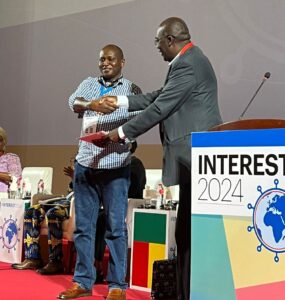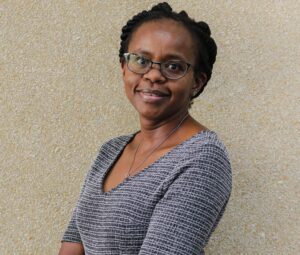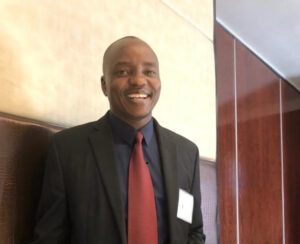John Bosco Isunju is a CARTA focal person at Makerere University and is central to the planning of the Joint Advanced Seminar 4. He spoke to us about what goes into it.
Tell us about the Joint Advanced Seminar 4 (JAS4). What is it about and what do CARTA fellows stand to gain in the process?
From JAS4, Fellows acquire a range of competencies and skills that contribute to their professional development such as grant application and teamwork, critical thinking, research leadership and management, as well as skills in curriculum development, pedagogy and learning theories. They are triggered to revisit their career path planning by reviewing their professional development plans. Also, Fellows acquire skills on how to translate knowledge, communicate science and influence policy. These skills help the Fellows to impact society and to generate evidence for decision-making.
What goes into the successful execution of the JAS 4? And what role does Makerere University play?
Like any other JAS, successful execution of JAS4 requires early planning, teamwork and support from the CARTA secretariat. It is key that training schedules are prepared on time and require consultations with the Fellows and facilitators to ensure their availability and commitment, and this might require several adjustments in the training schedule. Logistics also need to be organized on time to make sure Fellows and Facilitators’ needs are addressed as individual needs might vary.
The JAS 4 coordinators at the University review the curriculum and session planning, and preparation of appropriate materials. They also restructure the timetable to accommodate the concerns of facilitators, Fellows, experts, as they also factor in different time zones.
In addition, they plan meetings internally as Makerere University JAS4 organizing committee, engages in joint planning meetings with CARTA Secretariat, engage with CARTA Fellows during town hall meetings, facilitator-training sessions with the online learning experts, participate in weekly meetings with session leads and facilitators, distribute tasks and responsibilities and share feedback in the weekly meetings.
They attend all sessions to provide support to facilitators, coordinating IT support, setting up and sending out invitations for different sessions. They also monitor participation of Fellows and submission of assignments, and reaching out to Fellows whose performance of tasks is sub-optimal.
What are the opportunities that you have seen emerge from this seminar virtually?
The process of preparing for JAS4 has helped both facilitators and Fellows to get exposed to online platforms, tools and resources to enhance teaching, learning and assessment. These learnings will certainly be applied in our daily work as academics as we adapt and improve the online teaching, learning and assessment at our institutions. Also, reviewing the curriculum and adapting it to online mode of delivery has helped us to include content for competencies that are critical for virtual engagements, and to cut back on those that require physical presence. In so doing, we have been able to deliver JAS 4 entirely online, without compromising the attainment of its objectives.
Have you encountered any hurdles and how did you overcome them?
As it appeared more time was required to convert the JAS from physical to virtual. In such cases, we had to find suitable alternatives.
We faced challenges in designing online materials and also using Classroom as an online platform. A number of facilitators had not designed materials for online delivery before or used Google Classroom. In some cases facilitators became frustrated. However, the CARTA secretariat hired an e-learning consultant who took us through the process with weekly meetings to encourage and follow up on progress by the facilitators.
Keeping up with all the IT-related demands of online delivery, such as creating and sharing out zoom links, creating discussion groups, allocating host rights, maintaining class muted to avoid distractions and any other trouble shootings were a little too demanding. We contracted an IT expert to support the team.
There were also challenges with fellows accessing Classroom and making sure they are actively involved in discussions and submit assignments on time. We solved this by having to upload guidelines for fellows within Classroom. We also had to have increased online presence during the JAS4 so as to remind fellows to respond to chats and work on assignments and guide those having challenges.
Do you think by now the fellows have fully embraced doing their seminars online?
Certainly. Delivering JAS 4 entirely online has been a great learning opportunity for the organizing team, Facilitators and Fellows. All of these have gained new skills. The sessions were designed in such a manner that a lot of the teaching/learning occurs asynchronously by making materials available on google sites. The synchronous sessions were kept short and meant to elaborate whatever needed further explanation. We also made sure that the first 3 weeks of the JAS had less activity and this gave fellows and facilitators enough time to get used to the online platform. We believe this helped in the delivery and acquisition of the intended competencies.




